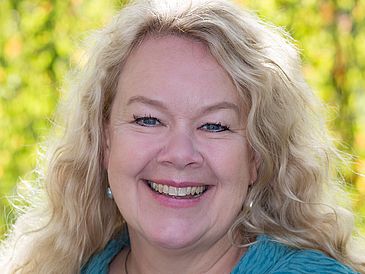Hearing aids improve hearing - but there is much more to these small devices: as a health centre on the ear, they can take on a variety of tasks in the future. Over the next five years, the universities of Oldenburg and Bremen will be pursuing specific approaches. Together, the researchers will equip hearing aids with additional functions that provide early warning of the risk of falling, recognise cognitive changes or document the progression of Parkinson's disease. The German Research Foundation is funding the HEARAZ (Hearable-centred Assistance: From Sensor to Participation) research training group with around 6.5 million euros, which was jointly applied for by the two universities. In the first funding phase, a total of 15 researchers will be given the opportunity to complete a doctorate. To this end, they are combining their expertise and laboratories: Oldenburg has many years of experience in hearing aid research and offers specialist medical disciplines, while Bremen provides expertise in biosignal and speech processing as well as nursing science skills.
At the co-applicant University of Bremen, the co-spokespersons of HEARAZ, Tanja Schultz, Professor of Cognitive Systems and Karin Wolf-Ostermann, Professor of Nursing Care Research at the Institute of Public Health and Nursing Research (IPP), are also involved in HEARAZ, as are the co-spokespersons of the research focus areas ‘Minds, Media, Machines’ and ‘Health Sciences’ and Haizhou Li, Professor of Computer Science and U Bremen Excellence Chair of the research focus area ‘Minds, Media, Machines’. HEARAZ brings together researchers from different disciplines, including doctoral students from computer science, physics, medicine and nursing sciences, neurosciences, health care sciences and the humanities and social sciences.
The focus is on different approaches to developing hearing aids into so-called hearables, which accompany wearers through everyday life as health assistants. Brain waves recorded at the ear can provide information about alertness. Biosignals such as blood pressure and pulse can be measured, as can a person's movements. In addition to speech patterns and body sounds, the microphones of a hearable can also register ambient noises. For example, the researchers want to analyse speech characteristics of hearing aid wearers, as cognitive changes, such as those that occur in dementia, have an influence on the way people speak. In addition to the medical and technical factors, the research team is also investigating the social and ethical issues associated with a health centre on the ear.
From a nursing science perspective, Karin Wolf-Ostermann will be supervising a project that investigates the question of how hearables affect the health and social participation of people with care and support needs. The aim is to evaluate whether such a device can, for example, improve the quality of life of users and reduce the burden on carers.
‘The HEARAZ Research Training Group is an excellent example of the successful research cooperation with the University of Oldenburg and expands it to include a completely new perspective,’ says Prof Dr Jutta Günther, Rector of the University of Bremen. In addition to the inter-university cooperation between Oldenburg and Bremen, the Research Training Group also strengthens interdisciplinary cooperation within the University of Bremen: ‘With HEARAZ, we are establishing another project at the intersection of the two scientific focal points “Health Sciences” and “Minds, Media, Machines”. This combination of expertise from computer science and health sciences is essential for forward-looking innovations in the field of health,’ says Karin Wolf-Ostermann.


